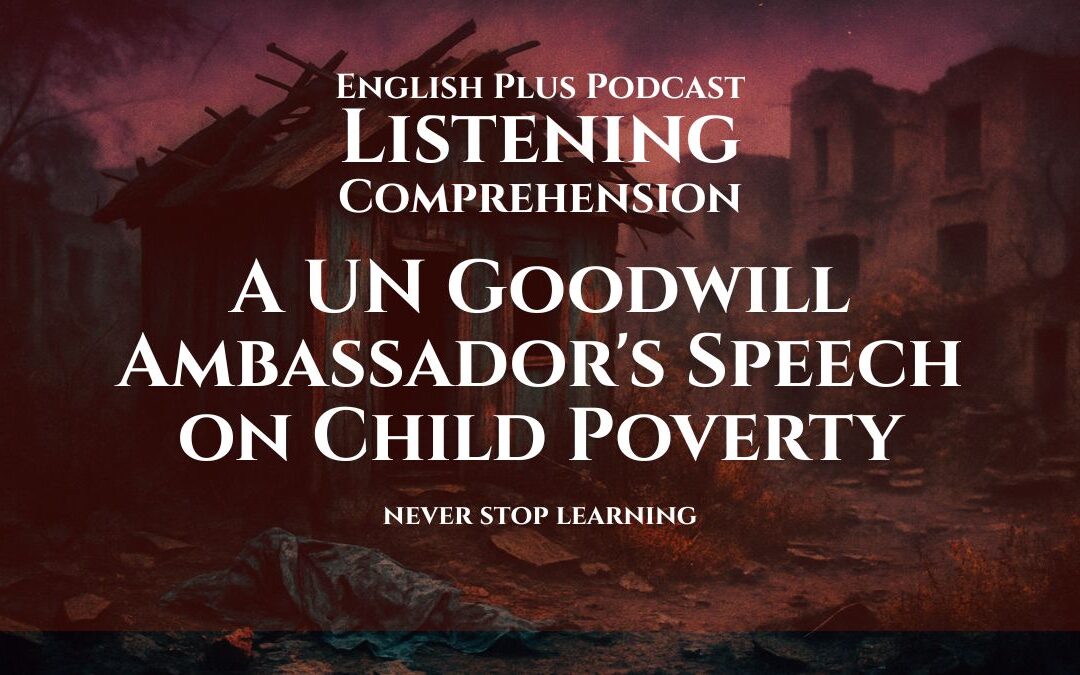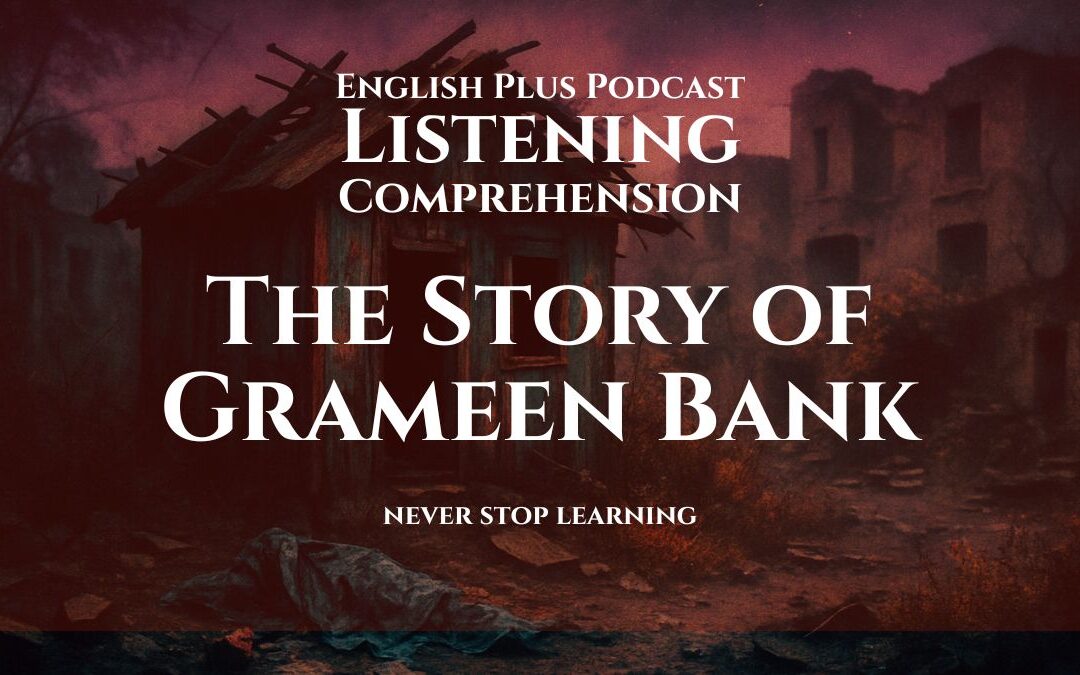Why do poor countries stay poor? Explore the systemic reasons, from colonialism’s economic legacy and unfair trade rules to debt traps, and discover how the global economy can perpetuate poverty.


Why do poor countries stay poor? Explore the systemic reasons, from colonialism’s economic legacy and unfair trade rules to debt traps, and discover how the global economy can perpetuate poverty.

Sharpen your English listening skills for international exams with this advanced practice test. Listen to a powerful speech on child poverty and answer 10 challenging comprehension questions.

How do words like “handout” versus “lifeline” shape our reality? This article explores the subtle grammar of judgment we use when discussing poverty, revealing how our vocabulary can build invisible walls of stigma. Discover how the connection between language and poverty impacts perception and policy, and ask yourself: if we changed our words, could we change our world?

Improve your advanced English listening skills for exams like TOEFL and IELTS with this practice test. Listen to a lecture about Muhammad Yunus and the Grameen Bank, and answer 10 comprehension questions.

Poverty isn’t just about a lack of money. Explore the concept of multidimensional poverty and discover why access to healthcare, education, and clean water reveals the true reality of global inequality.

Why does gender equality stop at the front door? We explore the “Second Shift,” the “Mental Load,” and why domestic equity is the next frontier of feminism.

In the finale of Shadow Games, we explore concrete solutions to political corruption. From protecting whistleblowers to the “Singapore Model” of governance, learn how societies clean house and restore trust.

Why do we call it a “Ponzi” scheme? Is it “Gerrymandering” with a hard G? Join the Archivist for a hyper-focused history lesson on the specific words we use to describe fraud, from salamanders to international postal coupons.

Explore the fascinating world of mimicry, where nature’s greatest con artists use deception to survive. From harmless flies posing as deadly wasps to octopuses vanishing in plain sight, discover the science behind these evolutionary illusions.

Discover how the digital economy mimics medieval feudalism. From the “rentier capitalism” of software subscriptions to the “precariat” of the gig economy, are we losing our ownership rights?

Corruption isn’t just about money; it’s about lives. In Shadow Games Ep 4, we explore the human toll: crumbling infrastructure, the death of meritocracy, and the erosion of public trust. See the real-world impact of the Shadow Game.